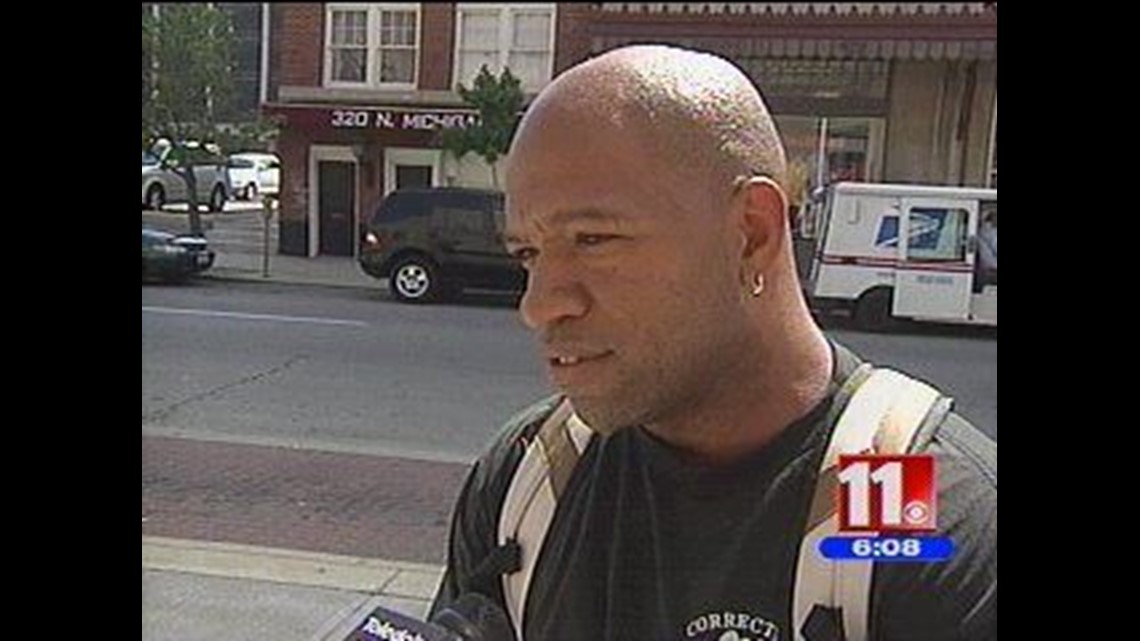



Posted by Nick Dutton - email
TOLEDO, OH (WTOL) - Toledoans will be listening closely to each presidential candidates plans for the economy. That's because the Glass City has just been named one of the poorest cities in the country.
Before Toledo's Main Library opens its doors for presidential candidate Barack Obama, and before rival John McCain's visits the city, Toledo is already making news.
It's been named the one of the poorest cities in the country.
According the US Census Bureau, Toledo was the tenth poorest city based on median household income in 2007. That means an average household earning $35,216 dollars a year.
Detroit comes in as the poorest city, followed by Cleveland, and then Miami.
Many Toledoans say they this latest ranking is disappointing, but don't find it hard to believe.
"I'm not surprised, because historically Toledo has been primary production companies, and all of the manufactured jobs are going elsewhere," says Eric Mays-Clausen.
"I think our economy is terrible, and if we had more jobs here, we would be able to bring it up," says Lisa Williams who has lived in Toledo all her life.
Both presidential candidates are expected to speak about the economy and the need for more jobs in their upcoming Toledo visits.
But with Toledo's latest poor ranking, many say their plans may be a tough sell.
Toledo resident Larry Levesque says, "It might be kinda of hard to convince people here that things are going to change."
The top 10 large cities with the lowest median household income in 2007:
Detroit $28,097
Cleveland $28,512
Miami $29,075
Buffalo $29,706
Pittsburgh $32,363
Cincinnati $33,006
St. Louis $34,191
Newark, N.J. $34,452
Memphis $35,143
Toledo $35,216
Source: U.S. Census Bureau, 2007 American Community Service
WASHINGTON, Aug 26, 2008 (PRNewswire-USNewswire via COMTEX) - New data released today by the U.S. Census Bureau shows that the percentage of Americans in poverty increased from 12.3 percent in 2006 to 12.5 percent in 2007. However, these figures do not paint a complete picture of America's struggling low-income families.
Rev. David Beckmann, president of Bread for the World said it's important to bear in mind that the numbers reflect data from 2007, prior to the effects of the worsening economic downturn the nation has suffered this year.
"Also conspicuously absent from these latest figures is the impact that drastically increasing living expenses such as healthcare, childcare, transportation, and housing have had on low-income families," said Rev. Beckmann. "The current way we measure poverty in the U.S. is woefully out of date. It assumes that food consumes a third of a family's budget, which does not reflect today's realities and fails to capture the true extent of the hardship experienced by American families."
He added that work support programs like the Food Stamp Program, Earned Income Tax Credit and child care and housing assistance have been shown to reduce poverty. "We must strengthen our social safety nets to better help struggling families," he urged.
Additional Census Bureau Report findings for 2007 include:
* For children younger than 18, the poverty rate increased from 17.4 percent in 2006 to 18 percent in 2007, bringing the number of children living in poverty to 13.3 million.
* For Hispanics, 21.5 percent were living in poverty in 2007, up from 20.6 percent in 2006. Poverty rates remained statistically unchanged for non-Hispanic whites (8.2 percent), blacks (24.5 percent) and Asians (10.2 percent) in 2007.
* The number of people living in poverty in the South increased to 15.5 million in 2007, up from 14.9 million in 2006.
According to Rev. Beckmann the new poverty data and a recent government report on rising job losses in 2008 reinforce the urgent need for Congress to enact a second economic stimulus package. He warned that it suggests that rebate checks from the first economic stimulus package of 2008 helped to mitigate the impact of the slowing economy but not boost it. Many economists are concerned that the economy will further slow down later this year as the tax rebate money is spent.
Bread for the World is a collective Christian voice urging our nation's decision makers to end hunger at home and abroad. By changing policies, programs, and conditions that allow hunger and poverty to persist, we provide help and opportunity far beyond the communities where we live.

